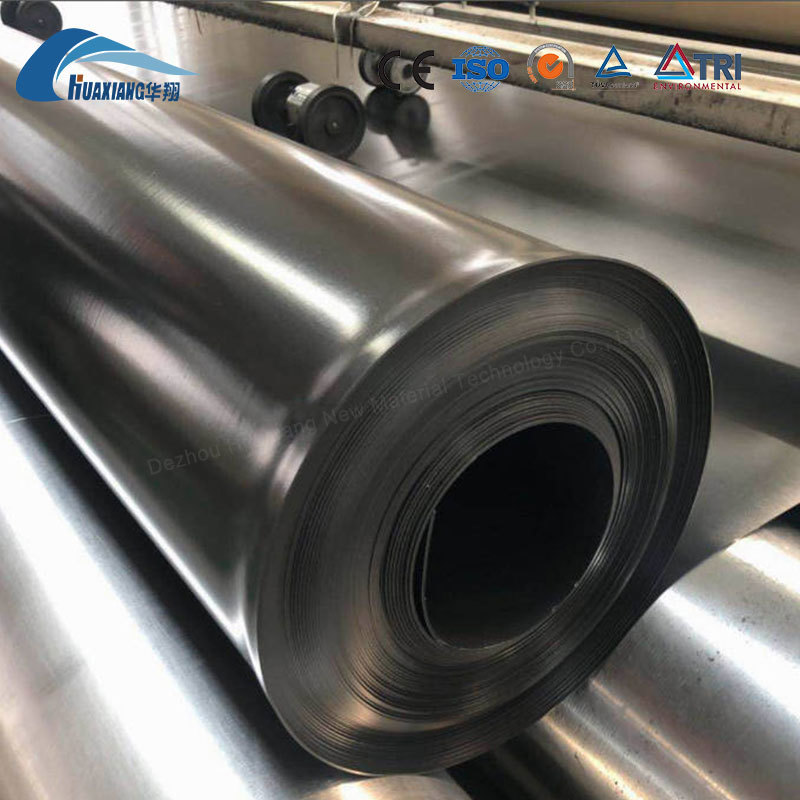
What is geomembrane?
Release time:
2025-02-12
Geomembrane is a highly efficient anti-seepage material, widely used in many engineering fields.
Geomembrane is an anti-seepage material used in civil engineering, usually made of high molecular polymers such as high-density polyethylene (HDPE), low-density polyethylene (LDPE), polyvinyl chloride (PVC), etc. It has excellent anti-seepage performance, chemical corrosion resistance and anti-aging performance, and is widely used in the following fields:
Main application areas
Landfill:
Used as an anti-seepage layer at the bottom and top to prevent harmful substances from seeping into groundwater.
Water conservancy projects:
Used for anti-seepage in reservoirs, channels, ponds, etc. to reduce water loss.
Environmental engineering:
Used in sewage treatment pools, tailings ponds, etc. to prevent the spread of pollutants.
Agriculture:
Used in irrigation channels, reservoirs, etc. to improve the efficiency of water resource utilization.
Construction engineering:
Used for waterproofing and moisture-proofing of basements, tunnels, etc.
Main features
Anti-seepage performance:
Extremely low permeability coefficient, effectively preventing liquid and gas penetration.
Chemical corrosion resistance:
Can resist the erosion of a variety of chemicals.
Anti-aging:
Add anti-UV agents to extend outdoor service life.
Mechanical strength:
High tensile strength and puncture resistance, adaptable to complex terrain.
Easy construction:
Light weight, good flexibility, easy to lay and weld.
 |
Geomembrane is a highly efficient anti-seepage material, widely used in many engineering fields. Correct selection and use of geomembrane can significantly improve the quality of the project and environmental protection effect.
PROJECT CASES
Apr 25,2024
Apr 25,2024
Apr 25,2024
Apr 25,2024
Apr 25,2024
Apr 25,2024
Apr 25,2024
Apr 25,2024



